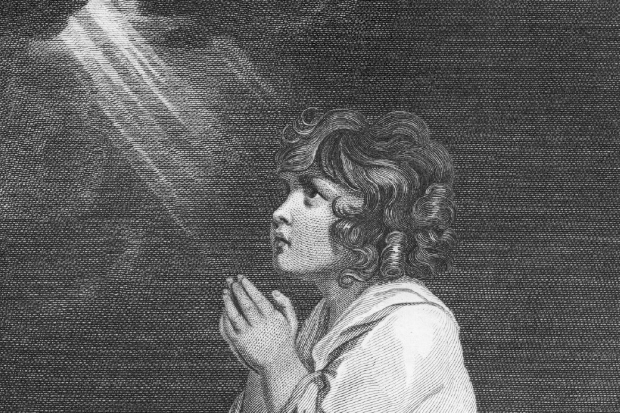Teaching is, and always has been, challenging. As society changes, so do the demands on educators. Every new generation at the chalkface likes to grumble that they have it worse than their predecessors and that their working lives are tougher than those of people in other professions. In response to this, friends working in, say, the City tend to mention the school holidays. The long summer break is a source of smugness for teachers, but the truth is that most of us love our jobs, and not just because of the glorious ‘six weeks’.
One thing that I keep coming back to, though, is the very real difficulty of teaching religious education. Teachers of RE are expected by their colleagues to be paragons of piety and virtue — and I am not being facetious here. They often have to cajole whole year groups of teenagers through a compulsory subject that carries none of the perceived weight or importance of English and maths in many schools. They are required to leave their own, often deeply held beliefs at the classroom door and then, in some schools, present a myriad of views — some of which they find intolerable or even dangerous — as being of equal merit. They are sometimes asked to present ideas that most rational people (and I’m including religious rationalists here) abandoned many decades ago due to their being totally unreasonable.
In the course of an average week, many RE teachers will have discussed abortion, the meaning of prayer, euthanasia, whether there is a purpose to human existence, homosexuality, the role of women in religion and whether there is life after death. They will have faced impossibly difficult and profound questions about these issues. They will have listened as students make comments that are, variously, bizarre, laudable, intolerant, ignorant and moving. This is delightful, yet it is also physically, emotionally and intellectually draining.
Very little was said about how best to deal with all of this during my teacher training, and I have therefore had to find my own way of doing things. My approach is to try to see myself as the medium through which information is imparted. I present what I hope are facts and try to remain as impartial as possible. I give honest answers about my own views, but only when asked. On several occasions, well-meaning people have told me never to tell my students anything of my own particular beliefs and to always turn the question around and ask them instead. I couldn’t disagree more with this notion. The subject I teach invites complex philosophical debates, and to refuse to engage personally would be very problematic. That approach would also seem to suggest a belief that young people are not reasonable enough to be able to form their own views without feeling compelled to side with the authority figure.
I try to communicate to my students that there are a multitude of world-views and perspectives that they may never have considered. I hope they know that they can say things that I dislike, so long as they communicate them properly. I also hope that I am not arrogant and that I don’t pretend that my personal views are objectively correct.
But it is difficult to reconcile my own philosophy with my teaching ideals. I don’t know whether there are such things as objective truths or immovable moral facts. My instinct tells me that there are some things that, to all reasonable people, are plainly wrong — discrimination, torture, genocide, apartheid and injustice, for example.
Yet not all people are reasonable, and we live in a world where some people clearly believe these things to be acceptable. I have never had a student disagree with me on this, and I can’t imagine a day when they will, but it does worry me. What would I say? I assume I would say that my view was not an objective truth, but that it ought to be. Subjective truth seems to be an unfortunate reality.
Tonight I’ll be planning my lessons. I’ll probably do some marking, too. I’ll try to build in time for these tricky issues, and attempt to predict where the discussions will go. I’ll evaluate how things went during the day and rerun debates in my head. I love my job, and the crazy, all-consuming, head-aching quandaries it throws up. It’s difficult and tiring, but it’s also fantastic.






Comments